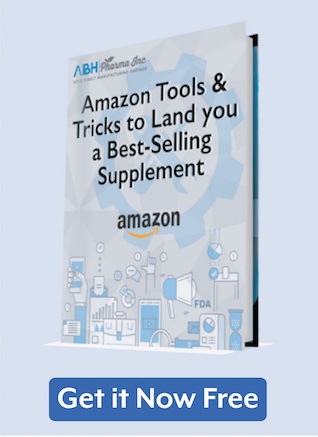The practice of controlling inflammation and joint pain has been around for thousands of years. The idea that joint pain is treatable using natural medicines is not new either. Inflammation is one of the primary causes of pain, stiffness and other problems that plague supplement consumers.
For this reason, many supplement manufacturers choose to either incorporate anti inflammatory ingredients into supplements designed for other purposes and/or create dedicated anti inflammatory supplements that reduce inflammation in a specific part of the body or the entire body. Below is some information about anti-inflammatory ingredients and their benefits to help you choose the best ingredients for the supplements you create.
A peer-reviewed article that appeared in the Journal of Surgical Neurology International points addresses that question, which natural substances are anti-inflammatory agents for pain relief. [ 3 ]
It also brings up the increasing popularity of using natural curative over prescription drugs because of the fewer side effects associated with natural products.
The journal article from Surgical Neurology International looks at the use of natural products such as Omega-3 Fatty Acids, White Willow bark, Curcumin, Green Tea, and other natural substances that have a long history of treating inflammation and joint pain. [3]
Ingredients that Reduce Inflammation

Curcumin
Curcumin is a substance found in turmeric, which is a root that can be ground into a powder with yellow coloring and a distinct scent. Studies have shown that curcumin acts as a powerful anti-inflammatory agent, even among consumers with arthritis. In fact, a study published in Alternative Medicine Review in 2010 found that people with osteoarthritis experienced significant improvements in their symptoms when they took a proprietary curcumin complex for eight months.
In addition to curcumin, turmeric contains several nutrients, including fiber, vitamin B, potassium, copper, iron and manganese. Turmeric offers other benefits aside from inflammation reduction. These benefits include lower serum cholesterol levels, improved skin texture, improved oxygen levels in the brain and lower blood pressure levels. Adding this ingredient to your supplements may increase appeal for consumers with these needs.
Omega-3 Fatty Acids
Multiple peer-reviewed studies have found that omega-3 fatty acids can reduce inflammation, as well as provide other benefits for consumers. Specifically, recent research has shown that omega-3 fatty acids can balance blood lipids and other biomarkers of inflammation. In a double-blind study conducted in Canada, researchers found that DHA-derived omega-3s were the most effective at reducing inflammation markers among patients with low-grade systemic inflammation.
Collagen
Collagen is another powerful anti-inflammatory substance that can support joint health as well. According to a study published by the University of Rochester, collagen supplements can support the regeneration of cartilage and reduce joint inflammation among mice with osteoarthritis. Researchers also noticed a significant reduction in the thickening of the membrane that surrounds the knee when mice were treated with collagen.
Vitamin C
A common water soluble vitamin, vitamin C can also act as an anti-inflammatory when added to supplements. This vitamin is an immune booster that acts as an antioxidant, reducing the stress on cells in the body. Because inflammation is the body's response to this stress, reducing stress can indirectly reduce inflammation.
Every consumer needs a certain amount of vitamin C, and the body's need for vitamin C increases if the individual is dealing with significant emotional or physical stress. In addition, the body doesn't store vitamin C, so consumers need to replenish this nutrient constantly regardless of their current need. This makes vitamin C an ideal addition to anti-inflammatory supplements.
Co-Enzyme Q10
Co-enzyme Q10, which may also be known as "ubiquinone," is a molecule that may be beneficial to consumers with a wide variety of conditions. One of its primary benefits is the reduction of inflammation. However, co-enzyme Q10 is also helpful for boosting the immune system, improving sperm motility, treating angina, lowering blood pressure and protecting LDL cholesterol from oxidation.
Because certain factors, such as alcohol intake and age, lower consumers' levels of co-enzyme Q!0, many people choose to take supplements that contain this ingredient.
Milk Thistle
Milk thistle is another potential supplement ingredient that offers anti-inflammatory properties. However, unlike most other anti-inflammatory ingredients, milk thistle targets the liver specifically. Because the liver is the major detoxification center of the body, protecting this organ from inflammation is essential. Milk thistle may also slow liver damage related to cirrhosis.
Licorice Root
Licorice root has anti-inflammatory properties that make it a good choice for supplements designed to help with eczema, acid reflux, canker sores and ulcers.
Black Willow Bark
Black willow bark is one of the strongest natural anti-inflammatories available. in fact, aspirin is derived from this bark. However, while aspirin causes gastrointestinal side effects, black willow bark does not.
Boswellia
Boswellia, which is also called "frankincense," is an effective ingredient for anti-inflammatory supplements. This substance is especially suited for supplements designed to treat fibromyalgia, muscle pain, joint pain or osteoarthritis.
Bioflavanoids
Bioflavanoids, which are compounds derived from plants, reduce inflammation and have been linked to lower rates of heart disease and cancer. In addition to anti-inflammatory properties, these substances are also antifungal, antiviral and antibacterial.
Examples of bioflavanoids that may be included in substances include yarrow, resveratrol, pycnogenol, grape seed extract and quercetin.
Star Flower Oil
Another powerful anti-inflammatory that makes an excellent supplement ingredient is star flower oil. This substance produces anti-inflammatory prostaglandins, which reduce pain and inflammation in the muscles and joints.
Vitamin E
Vitamin E is an anti-inflammatory vitamin, as well as a powerful antioxidant. It is effective against systemic inflammation, skin conditions, diabetes symptoms, heart disease and other conditions. In addition to addressing inflammation, vitamin E also helps to maintain healthy cell membranes, which facilitates better nerve conduction.
Vitamin E can be added to supplements in several different forms. Studies have suggested that mixed tocotrienols are the most potent anti-inflammatory forms of vitamin E. However, this form is also harder to source and more costly. The most common form of vitamin E used in supplements in alpha-tocopherol, which also offers significant anti-inflammatory effects.
Vitamin B12, Vitamin B6 and Folate
The body develops inflammation when levels of C-reactive protein and homocysteine are too high. Vitamin B12, vitamin B6 and folate have all been shown to lower the levels of both of these proteins, which in turn lowers inflammation. Adding any of these substances to a supplement can increase the supplement's ability to reduce inflammation and possibly combat certain types of pain.
Spirulina
Spirulina is a type of algae that reduces inflammation, strengthens the immune system and combats the signs of aging. Studies have shown that this substance may be beneficial for boosting consumers' immunity, improving the symptoms of anemia and reducing inflammatory markers.
Ginger
Ginger root is a common household spice that is often added to sweet foods. However, certain components of ginger may also be useful in treating disorders linked to inflammation, such as breast cancer, diabetes, kidney damage and colitis. These anti-inflammatory components include zingerone and gingerol. Studies have shown that giving ginger to people with breast cancer or diabetes improved key disease markers related to inflammation. Other research has suggested benefits for people with muscle soreness and inflammation after exercise.
Alpha-Lipoic Acid
Alpha-lipoic acid is a fatty acid that occurs naturally in the body and plays a role in energy production and metabolism. However, this substance is also an anti-inflammatory and antioxidant, which protects cells from damage. Studies have shown that alpha-lipoic acid reduces inflammatory markers in heart disease patients, as well as people without heart disease. Other research indicates that this substance reduces inflammation linked to heart disease, liver disease, cancer and insulin resistance.
Choosing Anti-Inflammatory Ingredients for Supplements
A large variety of anti-inflammatory ingredients are available to supplement manufacturers. However, putting all of these ingredients into your supplements isn't realistic. In order to choose the best anti-inflammatory ingredients for your needs, you must take the time to learn about each of these ingredients. For example, while some ingredients are best for consumers with muscle or joint pain, other ingredients are better suited for consumers with systemic inflammation. When crafting your supplements, choose the ingredients that will meet the needs of your target consumers more effectively.
Most consumers want to know how and why the supplements they purchase work for certain purposes. If you are marketing a supplement that contains anti-inflammatory ingredients, consider listing not only the names of the ingredients on the label, but also a brief description of how they work to reduce inflammation and what conditions they can help most. For example, if you choose to include ginger root in your supplement, consider adding a small amount of text about ginger's anti-inflammatory properties and the results of recent research regarding ginger and its effect on inflammation.
What Can You Do to Fight Inflammation?
The lessons that we learn from these studies is that our body uses natural substances to help control inflammation and pain.
One of the easiest things you can do is to simply eat a better diet so that you can add natural supplements for joint pain and inflammation to your daily routine.
Eat Well - Eating well is a matter of making some positive choices such as going organic, eating whole foods, making sure to drink plenty of quality water, and of course eating more vegetables. Is your diet doing all it can for your health?
Give up Your Vices - Live a life of balance. While that is often easier said than done, you can make positive gains by giving up smoking, not drinking excessively, and make sure that everything you do is balanced and equal.
One problem with modern lifestyles is that we tend to do only a few things. Maybe we jog every day or watch TV for three hours every evening.
Change up your routine and get off the couch. Go for a walk rather than just running.
Walk to the park and read your book rather than watching TV. Build quality family time rather than just being sloth-like.
What we learn from these studies is that many of the answers to better health and pain-free living do not have to involve prescription drugs.
As individuals, we have a lot of choice in what we eat, what we do, and how we live.
Can you make lifestyle changes that not only improve your health today but in the long-term too?
Further Reading
[1] Role of inflammation in the pathogenesis of osteoarthritis: latest findings and interpretations - US National Library of Medicine
[3] Natural anti-inflammatory agents for pain relief - US National Library of Medicine
[4] Therapeutic Roles of Curcumin: Lessons Learned from Clinical Trials - US National Library of Medicine
[5] Vitamin A, Infection and Immune Function - US National Library of Medicine
[6] Homocysteine and markers of inflammation in acute coronary syndrome. - US National Library of Medicine
[7] Inflammation and vitamin D: the infection connection - US National Library of Medicine
[8] Vitamin E has a dual effect of anti-inflammatory and antioxidant activities in acetic acid-induced ulcerative colitis in rats. - US National Library of Medicine
[9] Vitamin K and Rheumatoid Arthritis - US National Library of Medicine
[10] Vitamin K Fact Sheet for Health Professionals - National Institutes of Health







